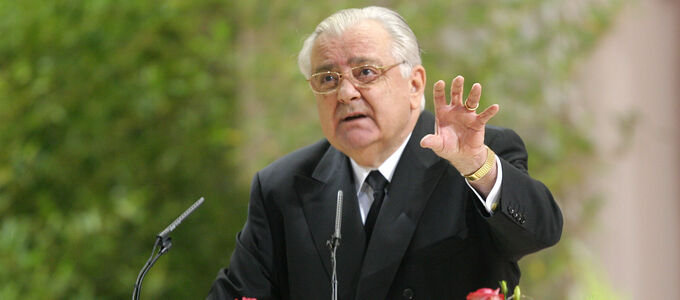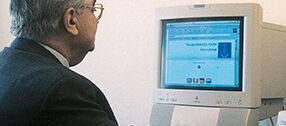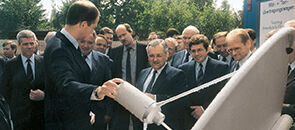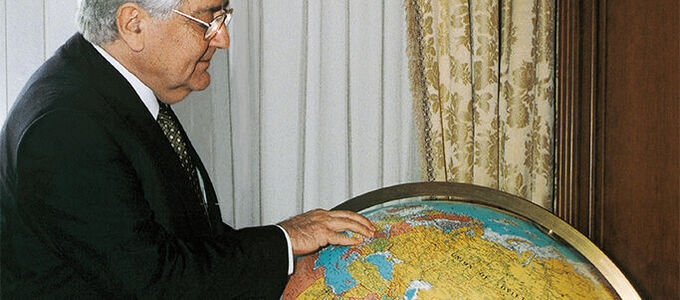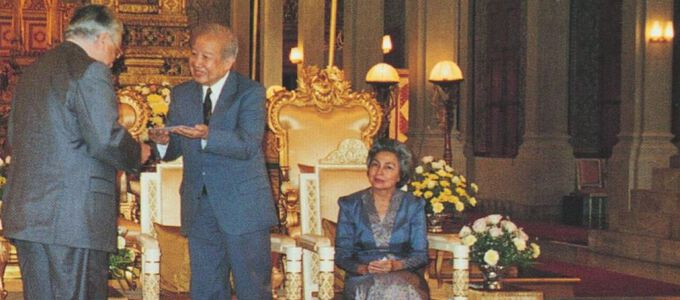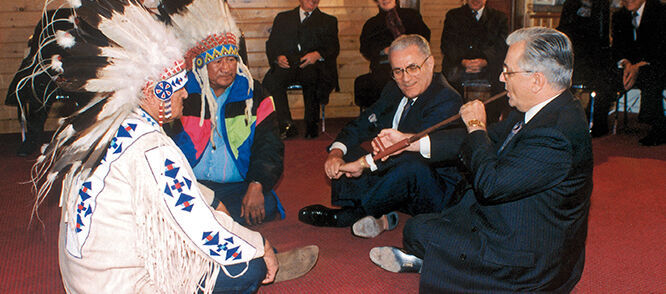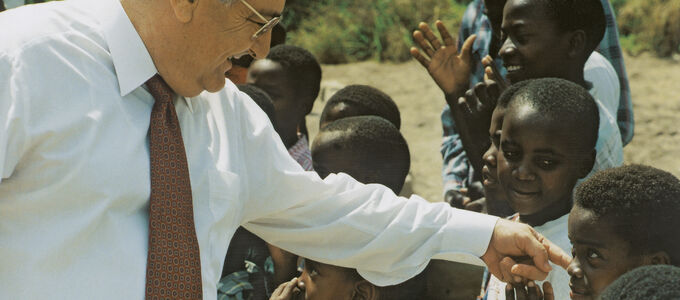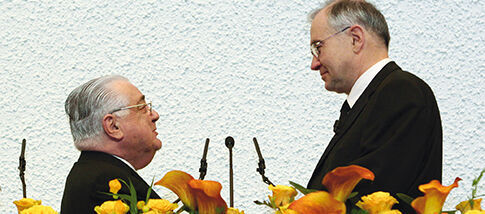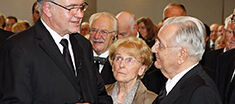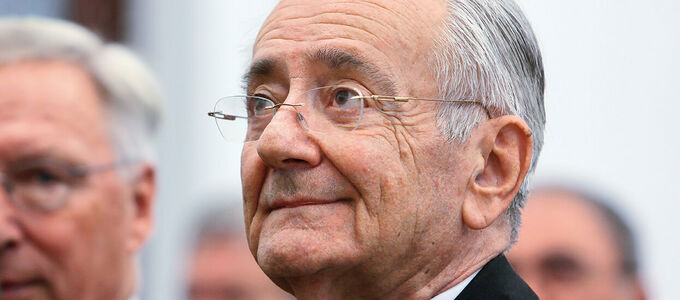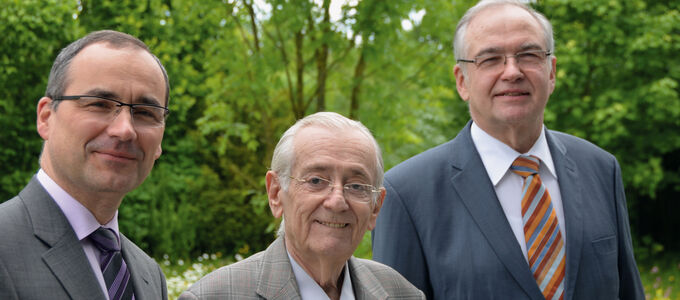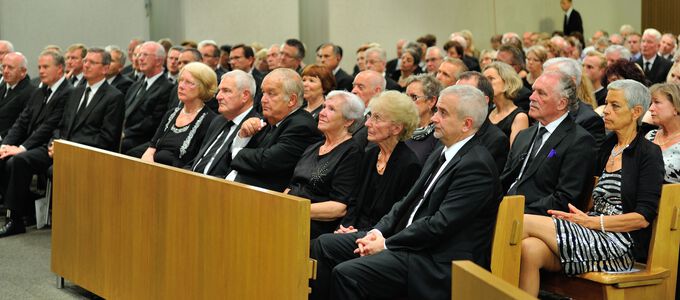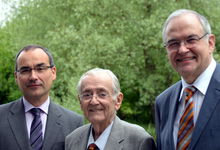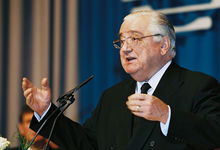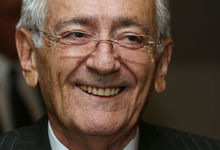A lifework of reforms
“If we want to preserve what we have, we will have to change many things,” was the guiding principle of Chief Apostle Richard Fehr, who died ten years ago today on 30 June 2013. Many of the innovations today can be traced back to his initiative.
During his time in office, Chief Apostle Fehr had several doctrinal statements clarified and rendered more precisely, for example:
- our doctrinal position on the first resurrection (Revelation 20: 6)
- our concept of sin (the difference between sin and guilt)
- the theory of evolution (scientific findings do not contradict statements of the Bible)
- the great tribulation (the period from the return of Christ to take home His bride until the next coming of the Lord with His congregation)
- the 144,000 (a number to be interpreted symbolically. It is comprised of those souls who will be accepted by Christ at His appearing)
- the power of the keys and authority of the keys (authority and mandate of the Chief Apostle ministry to preserve and develop the doctrine).
This work on our doctrine resulted in the decision in 2002 to compile a new fundamental work on the New Apostolic doctrine of faith, the Catechism.
There were also far-reaching changes in the area of liturgy and theology:
- the discontinuation of the second divine service on Sunday afternoons as of 1998
- the introduction of the 1984 revision of the German Luther Bible in the German-speaking regions as of January 2001
- the introduction of the New King James Version as the official Bible of the Church in all English-speaking countries as of January 2002
- effective January 2002, no more Sub-Deacons were ordained; seminars started on the subject of substantial sermons
- the Serving and Leading model was introduced for ministers and those who have functions in the Church.
Chief Apostle Fehr changed the institutional functioning of the Church. He founded about twenty project and working groups to cover subjects such as contemporary issues or youth care, which developed statements on official Church positions. With the start of the new millennium, forward-looking topics such as financial strategy and church strategy were added.
The structures of the Regional Churches also underwent change. There were
- mergers (Central Germany, Northern Germany, Southern Germany)
- partitions (Canada and USA)
- reassignments of countries served and new areas of responsibility (India and parts of West Africa)
During his time in office, the New Apostolic Church opened itself cautiously to the ecumenical process. The Ecumenism project group, which Chief Apostle Fehr himself established on 28 October 1999, played a significant role in this process. He also intensified contacts with other apostolic denominations, which had already begun under Chief Apostle Hans Urwyler.
In the field of charity, the Church leader of the 1980s invited the members to give a special thank-offering on Thanksgiving Day, which was used for humanitarian and charitable activities across the globe. He made a point to promote the establishment of the German relief organisation NAK-karitativ.
Chief Apostle Fehr also inspired new teaching material and music. He
- commissioned new textbooks for Sunday School (Lord Jesus, come), religious instruction, and confirmation classes
- had a new youth concept drawn up, which was adopted in April 2004
- had a new hymnal compiled for the German-speaking countries, which was completed shortly before his retirement and has been in use since Easter 2005.
Public relations work was something that was very important to him. He
- installed a media officer and spokesperson for the New Apostolic Church in 1996
- supported the internet presence of the New Apostolic Church
- encouraged the Regional Churches to do more outreach work
- promoted and called for the establishment and expansion of video and audio transmissions.
It is almost impossible to mention all the numerous large and small decisions that contributed to changing New Apostolic culture during his eighteen-year tenure. For example, he advocated a significant liberalisation of the strict rules of conduct that had existed within the Church. Many of these “little human rules”, as he referred to them, have long since been abolished.
Article info
Author:
Date:
Keywords:
Peter Wild,
Andreas Rother
30.06.2023
Chief Apostle,
People/Personalities


